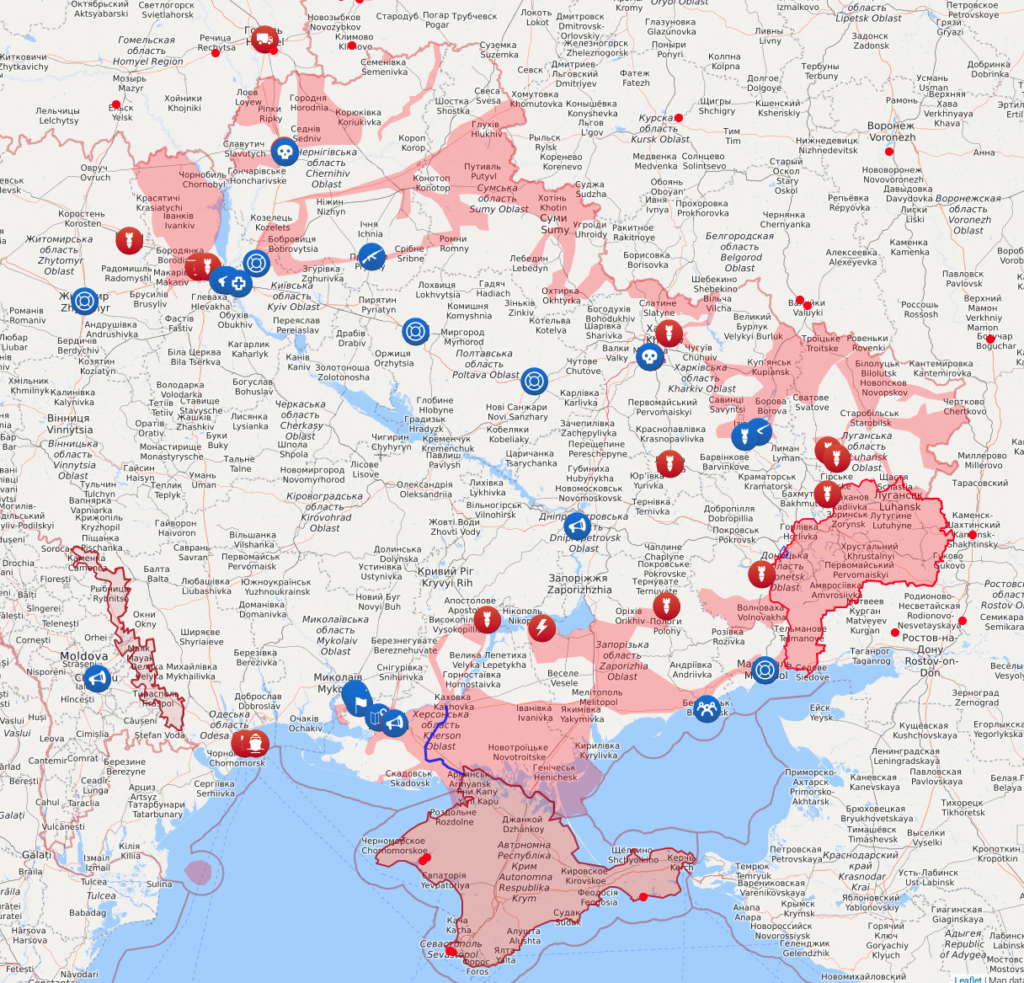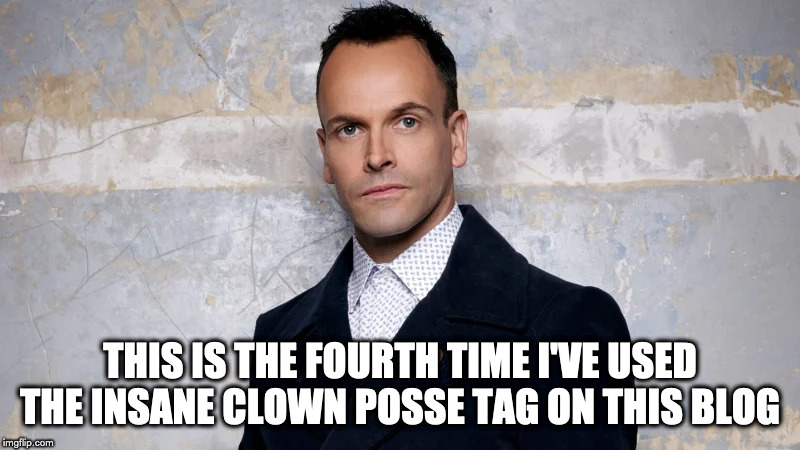Let’s clear some tabs on recent European elections of note. First up: Hungary reelects Viktor Orban.
Viktor Orbán, who has served as prime minister of Hungary since 2010 — and spent a stint in the same office from 1998-2002 — won yet again in Sunday’s much-anticipated elections. His party, Fidesz, won two-thirds of the seats in parliament. Fidesz’s closest competitor was United for Hungary, an amalgamation of parties which included socialists, greens, and Jobbik, which was recognized as an antisemitic, neo-Nazi outfit until recently. Now, it presents itself as a moderate, “modern,” alternative to Fidesz.
Orbán’s triumph, we are meant to believe, represents a near-fatal blow to Hungarian democracy, and a painful one to the capital L, capital W, capital O, Liberal World Order.
Snip.
Now, Orbán is no saint, and yes, that is an understatement. He enjoys close relationships with both Vladimir Putin’s Russia (although he has denounced the invasion of Ukraine) and Xi Jinping’s China. As Jimmy Quinn detailed here, Orbán has helped China carry out its post-pandemic propaganda program, and pursued deeper financial ties between his country and the genocidal one to the east. This is not the behavior of a man keen on being what Rod Dreher calls “the leader of the West now — the West that still remembers what the West is.”
Moreover, Orbán’s domestic behavior can fairly be called authoritarian. He has championed what he calls “illiberal democracy,” and enacted reforms to the country’s judicial system that undermine its independence. Evidence points to significant financial corruption on his watch as well.
But the failure of many of Orbán’s critics to accurately report on his regime points to the weakness of many of their arguments. Take this piece from The Atlantic, which, as National Review alum Daniel Foster notes, doesn’t exactly describe Orbán as an autocrat. Its author argues that the formation of a private, pro-Orbán media conglomerate that receives government funding is damning evidence of the corrosion of democracy in the country at the hands of its leader. That’s not exactly convincing to those of us who have watched NPR hold a pillow to the face of the Hunter Biden-laptop story and erroneously smear Supreme Court justices.
Orbán is not a U.S.-style conservative fusionist or anything especially close to it, and that’s a bad thing, in this writer’s opinion. But he is, quite obviously, the kind of conservative who appeals to Hungarians, and despite his many warts, that might just be okay. People in other countries are allowed to hold different opinions on LGBT issues, European integration, etc. than your average undergrad at Middlebury. Indeed, the implementation of those policies at the public’s will represents democracy in action, not its antithesis.
Orbán, the prime minister of a nation with a population only slightly larger than New York City’s and something approximating a friend of the Chinese Communist Party, is no more the savior of Western Civilization than Joe Biden is. But he’s also no threat to self-government across the world, and his critics’ flubbing of basic terms they proclaim to love leaves the rest of us wondering if they even know what it is that they value.
Orban’s victory has generated much consternation among the Euroelite:
Viktor Orbán and his brand of conservatism faced a crucial popularity test in Sunday’s general elections, a test he passed with flying colors. The Hungarian premier and his Fidesz party thumped the opposition’s unity coalition—composed of liberals, greens, Communists, and the neo-Nazi Jobbik—by a humiliating margin of nearly 20 points; opposition leader Péter Márki-Zay was defeated even in his own district.
Orbán also struck a painful blow against his critics in Brussels. Ever since he returned to power in Budapest in 2010, and especially in recent years, Orbán has played lightning rod for seemingly the entire EU establishment, even as he has galvanized populist and national-conservative forces on the Continent. Reviled, denounced, sanctioned, and banished from the European Parliament’s center-right bloc, he has gone from internal critic of Brussels to an outright dissident.
In this, Orbán hasn’t been alone. For the past five years, the European Union has also locked horns with the national-conservative Law and Justice party, or PiS, in neighboring Poland. Both countries allegedly fail to uphold “rule of law,” as defined by Brussels. The European Commission charges Hungary and Poland with threatening media freedom and judicial independence, with not doing enough to tackle (or actively engaging in) systemic corruption, and with violating LGBT and minority rights—charges denied by political leaders in Budapest and Warsaw.
Some paragraphs on Hungary’s largely neutral stance on the Russo-Ukrainian War snipped.
Still, once the Russo-Ukrainian dust settles, it is likely that the older dynamic—Budapest and Warsaw together in the anti-EU trenches—will resume. PiS might have won some temporary favor with Western hawks by toeing a hawkish line on Russia, but the underlying tensions haven’t eased. Indeed, the issue that has received the most attention in recent years is the Polish government’s decision to establish, in 2017, a new judicial disciplinary body, composed of jurists appointed by the lower house of Parliament, to hear complaints against judges facing misconduct allegations. European officials claim, not entirely without reason, that this exposes the Polish judges to political control.
This clash is often framed by both camps in stark culture-war terms. “Pro-European” liberals and EU officials themselves present it as a conflict between the liberal-democratic values of the union and the illiberal and undemocratic practices of the two countries’ nationalist governments. Partisans of Hungary and Poland, meanwhile, frame the contest as one between two traditional and religious nations and an imperialistic Brussels bent on pushing a left-wing, globalist, and anti-Christian agenda.
Things are a little more complex. For starters, the crimes Hungary and Poland are accused of aren’t unique to those two countries, not by EU standards, at least. The high courts of EU states, where they exist, are all highly politicized, which usually means they hardly ever dare challenge the wisdom of EU legislation.
As for corruption, it’s notoriously hard to measure. To the extent that some institutions try to gauge it, on the basis of people’s perception of the levels of corruption in their country, Poland’s and Hungary’s governments come out as significantly less corrupt than those of other Eastern nations, such as Romania, Slovakia, Slovenia, and Bulgaria; they also come out better than governments in Spain, Portugal, and Italy.
Paragraphs on press freedom and “LGBT” issues snipped.
In light of all of the above, the real question isn’t whether what’s happening in these two countries is indeed worrying, or whether an a-democratic, supranational body like the European Union has any right to lecture the governments of two democratic member states and the people who elected them. The more interesting question is why Brussels has singled out Hungary and Poland for problems common to the bloc as a whole.
The answer has relatively little to do with the charges brought against the two countries, though of course they play a role. In the eyes of the European gatekeepers, the pair has committed a much more heinous crime: Hungary and Poland have openly challenged the authority and legitimacy of the European Union itself. More specifically, they have dared to reject what is arguably the most important article of faith of EU doctrine: the primacy of EU law over national law.
Thus, when Brussels claimed that Poland’s judicial disciplinary body, created in 2017, violated EU law and should be revoked “in accordance with the principle of the primacy of EU law,” the Polish government refused to comply, contending that the demand represented an unacceptable infringement on the country’s national sovereignty. In an attempt to resolve the dispute, Polish premier Mateusz Morawiecki asked the Polish Constitutional Tribunal in Warsaw this question: If push came to shove, and EU law were ever to clash with the Polish constitution, which should prevail?
The tribunal delivered its verdict in 2021: It voted 12 to 2 for the national constitution, holding that “the attempt by the [European Court of Justice] to involve itself with Polish legal mechanisms violates … the rules that give priority to the [Polish] constitution and rules that respect sovereignty amid the process of European integration.”
The Polish tribunal, in other words, insisted that national law enjoys primacy over EU law—a principle without which “the Republic of Poland cannot function as a democratic and sovereign state.” More than that, the tribunal accused the European Union and the ECJ of violating EU treaties themselves by claiming otherwise. Quite the bombshell.
Suffice to say, EU officials and pro-EU elites didn’t take it well. Luxembourg’s foreign minister, Jean Asselborn, claimed that the tribunal’s ruling put the very existence of the European Union in jeopardy. “The primacy of European law is essential for the integration of Europe and living together in Europe”, he said. “If this principle is broken, Europe as we know it, as it has been built with the Rome treaties, will cease to exist.”
To understand why the ruling represents such an existential threat to the EU, one must comprehend the fundamental role of EU law in the bloc’s superstate-building project. Legal scholars have contested the supposed primacy of EU law for half a century. In practice, however, national courts and governments, which tend to have an engrained pro-EU bias, have hardly ever contested the primacy principle. This has allowed the ever-expanding body of EU legislation, the so-called acquis communautaire, to become the main engine for so-called integration by law—the hollowing out from above and within of national constitutional and legal systems.
EU legal primacy has also bestowed huge powers upon the ECJ: Despite lacking the democratic legitimacy and accountability of national courts, the European court, by constantly creating new “laws” through its rulings, almost always in favor of “more Europe,” has effectively become the bloc’s most important legislative and, indeed, constitution-writing body. Alec Stone Sweet, an international-law expert, has termed this a “juridical coup d’état.”
By going against this principle—and by asserting the primacy of national sovereignty over EU law—Hungary and Poland have thus dealt a potentially deadly blow to one of the bloc’s main empire-building tools. This is ultimately what the two countries are being punished for. And to do so, the European Union is resorting to the most powerful tool at its disposal: money. Last year, in a move clearly aimed at Hungary and Poland, Brussels adopted for the first time ever a Rule of Law Conditionality Regulation, which allows the European Commission to withhold the payment of EU funds to member states that are found to be in breach of the rule of law—as defined by the EU/ECJ itself, of course.
The commission has already used the new rule to refuse to approve the Next Generation EU Covid-19 recovery funds for the two countries—€7 billion for Hungary and €36 billion for Poland. And more funds may be withheld in the future. Budapest and Warsaw challenged the new rule at the ECJ, which predictably dismissed the two governments’ complaints.
Thou Shalt Have No Other Gods Before The EU.
How this will pan out remains to be seen. The European Union isn’t new to this kind of blackmail. The European Central Bank has repeatedly choked member states, to bring recalcitrant eurozone governments to heel or even to force regime change (the removal of Silvio Berlusconi in 2011, the shutdown of Greece’s banks in 2015). EU leaders seek a similar coup in Hungary and Poland. Only, Hungary and Poland aren’t in the eurozone; they control their own currencies. The money the pair receives from the European Union is significant, but it isn’t a lifeblood: Between 2010 and 2016, annual net transfers from Brussels—the difference between the total expenditure received and contributions to the EU budget—amounted to 2.7 percent of GDP in Poland and 4 percent in Hungary. This puts the two countries in a very different position than, say, Greece.
Meanwhile, over in France, incumbent Emmanuel Marcon and right-wing challenger Marine Le Pen head to a runoff. (Naturally, French antifa reacted to Le Pen making the runoff by rioting. If you’re a moron and all you have is a hammer…)
Remember how self-described “Bonapartist” Eric Zemmour was supposed to be the new hotness? Yeah, he finished a distant fourth. Le Monde describes his failure thus:
Eric Zemmour gathered 7.07% of the votes cast in the first round of the presidential election on April 10, according to official results. This defeat can probably be explained by several factors, which the far-right candidate saw creeping up on him over the past few weeks, leading him to seek supporters in all segments of the electorate.
Eric Zemmour failed to unite “the patriotic bourgeoisie,” apart from some who voted for François Fillon in 2017 and the Catholics in the “Manif Pour Tous” organization [a group opposing same-sex marriage] and “the working classes,” who have remained for the most part loyal to Marine Le Pen (23.15% of the vote). His Reconquête ! party was already showing these weaknesses: Eric Zemmour has in fact built a new Rassemblement National (RN) party to the right of the RN, where support from Les Républicains (LR) is rare. The only people to join him from the traditional right-wing party Les Républicains are the obscure senator Sébastien Meurant, an unknown former MP, Nicolas Dhuicq, and Guillaume Peltier, the former number two of LR, who is known for switching parties a lot (he is a former member of the Front National, of Bruno Mégret’s Mouvement National Républicain (MNR), of Philippe de Villiers’ Mouvement pour le France (MPF), and also of the UMP).
Yeah, for the most part I don’t know who those people and parties are either.
Eric Zemmour had reason to believe in victory: With barely 7% of intended votes in September 2021, he rose to 17% and 18% in polls in mid-October, before plunging down the rankings. He has obviously succeeded in forcing his campaign issues to the forefront, including on the traditional right, building a movement from scratch that now gathers more than 100,000 supporters who are extremely active on social media and drawing crowds to rallies like no other candidate.
“Extremely active on social media.” That should be a big ole red flag. Twitter is not the territory.
But the excitement that he generates among his supporters has not translated into votes. “I believe that the momentum is on my side,” he repeated on April 6 on France Inter public radio. “All the objective elements: the full rooms, the excitement, the television ratings, the number of supporters; all of that is me.” His sycophants around him have greatly elevated the hubris of a man who had no shortage of it, and who didn’t mind becoming a kind of a guru whose mere presence electrified the crowds.
Snip.
In the end, it is the war in Ukraine that led the candidate to plummet in the polls. Due in part to his admiration for Vladimir Putin (“I dream of a French Putin,” he had said in 2018), his inability to call him a “war criminal,” and finally his reluctance to welcome Ukrainian refugees – unlike Marine Le Pen.
Yeah, I’m not sure how much that had to do with it, since Le Pen is hardly tough on Putin herself.
Is Le Pen a nasty piece of work? Well, she’s certainly not my cup of tea, and I doubt she has a translated copy of The Federalist Papers on her bookshelf. (Though thankfully, she seems to have abandoned her father’s antisemitism.) Macron is arguably more “free market,” though that phrase has very little meaning in the matrix of current French politics. Yellow Vest voters seem to favor Le Pen, and she wants to lower VAT taxes. She opposes Flu Manchu passports. She’s still a Euroskeptic, wants to reform the European Commission, wants a referendum on immigration restriction, and opposes jihad. She wants to abolish the International Monetary Fund. She’s a Russo-phile who wants to remove France from NATO. Like Orban, she would be a big thorn in the side of the EU. Unlike Ortban, she would also be a big thorn in the side of the US as well.
Damned if you do and damned if you don’t.
Those in the chattering classes proclaiming Orban a grave threat to democracy are wrong. Those proclaiming Le Pen a threat to democracy (and American interests) are slightly less wrong, but Le Pen is less a long-term threat to democracy than the EU’s own transnational globalist elite. NATO survived over 40 years of France’s withdrawal from NATO’s command structure under de Gualle, and (to the extent the alliance is relevant to the 21st century) could survive France’s withdrawal once again.
As National Review once said of Jean Le Pen, “we have no frog in this fight.”





